People in the streets and at home are talking about the intersection of race, class, and gender in a more substantive way and how the Democratic Party tries to hijack movements. Adrienne Dixson on theAnalysis.news podcast with Paul Jay
Transcript
Paul Jay
Welcome to theAnalysis.news podcast. I’m Paul Jay. As the protests continue across the United States, broaden, deepen and even more sections of the population get involved, including people who have never protested and rallied about anything, the question is, can this movement be sustained? What kind of leadership is emerging? What are the demands of the movement? What should be the demands of the movement? Now, joining us to talk about all of this is Adrian Dixon. She’s a scholar of race and gender equity and urban educational context. She’s an author of over 30 scholarly journal articles and book chapters and editor of five books on critical race theory and education. She’s also a trained musician with an undergraduate degree in music theory and composition. And she lives in Illinois and in New Orleans. She goes back and forth. Thanks for joining us, Adrienne.
Adrienne Dixson
Thank you for having me.
Paul Jay
So, first of all, give us a sense of what the protest movement has been like in. I don’t know if people are calling it the Black Lives Matter movement or not, but what’s it been like in New Orleans?
Adrienne Dixson
Actually, folks have been fairly active. I have not been out at the protests. I’ve actually been on self quarantine for a couple weeks because of some travel that I’ve been doing. I live close to where they come up and have protested a couple of times. They’ve covered a lot of geography in the city. And it looks like a coalition of groups. So there was a group that was fairly active called Take Down, Take Them Down New Orleans, and they led the charge to remove the Confederate monuments. I was watching some video on, I don’t even know the days of the week. I joke and tell people every day is Saturday or Sunday. So it may have been Friday night. I think there was a convening of folks outside downtown somewhere and the Take Him Down Those Folks were kind of trying to corral folks and organize people, ensure that folks are staying safe. I don’t know that we have a chapter of Black Lives Matter in New Orleans, but I know that we, again, have a coalition of groups and folks have been you know, they’ve been really active. They’ve taken over the highway. So there, though, the protests have gone on the ITEN. They attempted to cross the Crescent City Connection, which is the bridge that crosses from the East Bank up to New Orleans to the West Bank. They were blocked by the police and met some aggression on the part of the police with tear gas and and whatnot, which is very scary because folks are actually on the bridge suspended over the Mississippi River.
News Report
All right, folks, it looks like we got interrupted a minute ago. A tear gas canister was thrown close to where we are. As you can see, there is a small no man’s land dividing line between the NOPD officers on your right. And protesters, several hundred, perhaps thousands on the left shouting, „Don‘t shoot, don’t shoot.“
Adrienne Dixson
So the situation escalated to its current standoff. A few minutes ago when NOPD attempted to push the protesters back off of the Crescent City Connection. I’ve seen information posted on Instagram and Facebook and Twitter about when folks are convening. And it’s been almost every day. I think yesterday they met at noon. But most days they meet after six o’clock and march..
Paul Jay
The demands that are being made, the kind of slogans when people are on the streets and generally, what are they?
Adrienne Dixson
So I’ve heard various things. I’ve heard people asking to defund the police department.
Paul Jay
I just saw a news story just went by. Bill de Blasio in New York apparently just decided to reduce funding of the police department and put it into social services.
Adrienne Dixson
Yeah, so I’ve heard that. I’ve heard clearly people want more accountability for police. They want, and by accountability they want oversight. So a community oversight board. We have a version of that. I don’t honestly know how active it is. I know it exists because I’ve seen within city government there is kind of a New Orleans kind of police something. I think it actually is a result of the consent decree. New Orleans is under a consent decree with the Justice Department. And so I’ve seen that. I’ve seen certainly demands for the police officers in Minneapolis to be held accountable. And I think that some folks have been sophisticated enough to say that charges aren’t enough; that there has to be a conviction and then a meaningful kind of sentence for the murder of George Floyd. Folks have asked for kind of a full scale reform of prisons and sentencing. I’ve seen abolition groups just calling for us to kind of completely rehaul and reform our entire criminal justice system. So it’s been kind of a myriad of requests.
Paul Jay
The underlying issue here is, as far as I can see, both in terms of what I saw in Baltimore, and I think it’s kind of obvious, which is the chronic poverty and underemployment of so many people of color, and particularly African-Americans. This enormous pool of cheap labor is really at the heart of why there’s systemic racism.
If there was some war or some emergency tomorrow.
Adrienne Dixson
Yeah.
Paul Jay
You know, black workers would all of a sudden have real jobs. On the other hand, most black workers actually do have jobs. They just pay towards minimum wage
Adrienne Dixson
. They just don’t pay well.
Paul Jay
Yeah. Yeah. Paid terribly. And in the end, racism, racist ideology is the justification for all this. Is there a sense of that in amongst these protests that there need to be demands that go to the economic heart of the problem?
Adrienne Dixson
It does seem to be. And that’s the kind of when I would say there is kind of myriad requests. I think that I’ve seen people, at least here in New Orleans, the protests of folks talking about kind of affordability. Talking about livable wages. Folks have been really animated around the tourism economy and that, you know, that New Orleans is almost a place that services outsiders and it doesn’t serve its citizens. So there’s been—-and that has been building before the protests around Mr. Floyds death. That has been building. In fact, at least a month or so before his death. Right. When we went into shut down mode in the economy in New Orleans was impacted by the shut down of the stay at home orders. There were workers organizing or trying to organize to get some sort of fund to support people who service the, you know, the tourism economy.
So you have restaurant workers, you have hotel workers and cooks and waitresses or waitstaff, janitorial staff, folk who are completely displaced when the tourism economy tanks, and that New Orleans before Katrina, but certainly full-blown when Katrina, after Katrina kind of shifted its focus to tourism and servicing a population of folk who don’t live in New Orleans on a kind of quasi-permanent basis. So you have the Air BnB’s where you have a lot of outside owners who, again, are servicing short term to medium term renters. There was a lot of energy to support the film industry. And so people were organizing to force the convention bureau, which is a separate entity to who, they get tax support. But they are a separate entity to force them to kind of share the wealth, if you will. They had a surplus. They didn’t have a surplus, but they certainly had funds. And rather than put in, to build a, to rehab the convention center and build a hotel and a whole entertainment industry, to use that fund to pay, you know, people who support the tourism industry, the workers. And there was a lot of contention around that. And a lot of unwillingness on the part of the convention bureau folks to kind of share their funding that is not private funding. It’s all public lending by tax dollars that are, you know, in Louisiana. New Orleanians pay a hefty tax price, so not only it’s almost like we’re, you know, doubly taxed. So whatever, when groups come in, there is a state tax and a city tax, and then we recoup a very small percentage of those state taxes. And yet, you know, when I go to the store to buy things, a portion of my tax goes back to the city and then, you know, so I mean, goes back to the state. So New Orleanians were asking just for their fair share, and that as the convention bureau, you know, enjoys these kind of extra tax dollars that they then, you know, fund their workers. But the people who support what they do. And there was just an unwillingness.
And then we have the George Floyd protests. So I think there has always been, at least in New Orleans, some concern in large part because African-Americans and Latinos are disproportionately represented in the tourism industry here in New Orleans. And so in many ways, is always going to be an issue about race, and an issue about race and class.
Paul Jay
This video of George Floyd being essentially murdered. It’s not the first one. There’s been other videos, some of them as overt as this one. But there’s never been a response like this. And the—Do you think this pandemic moment is creating a different atmosphere that helped give rise to this?
Paul Jay
And how is it that so many young people are willing to risk getting the Covid 19? A lot of these kids? And that’s not all kids by any means. There’s a lot of adults out, too, but lot of young people very close together at risk of getting the illness. And yet they’re saying this is too important not to go out anyway.
Adrienne Dixson
Yeah. Well, I think one, and I do want to say that I want us to remember that Brianna Taylor was murdered in her home. I think right before George Floyds death. So they were, you know, not even a month apart. And she was just as blameless. Right. In her own death. She was literally at home asleep and a no-knock warrant and was murdered. Right. So I think it’s the kind of confluence of issues that that young folks are responding to.
We didn’t see Brianna Taylor’s murder. We certainly knew about Brianna Taylor’s murder. But we could see, literally, the life leaving George Floyd’s body. And I think that for any of that could have been anybody. Right. It could’ve been anyone in a nice place like Minneapolis. Right. Minnesota, the Minnesota nice. And a nice place like Minneapolis. This, too, could happen to to you or anybody, you know. And I think that, you know, young folks are just. Yeah. That this is an issue that we have to capitalize on now.
The truth is, too, also they’re not in school, so they have the time. I mean, just the pragmatics of it. When he dies, they may not that, you know, they may have been away in school, but they’re home. Right. And so they have the time to do this. And I think that for young people, you know, again, the young people who are out now, they’ve lived through multiple death. John Crawford in Dayton, Tamir Rice in Cleveland, Trayvon Martin in Florida. All of them are their age peers. These are all folks that they could see as their peers who have been killed for no other reason than just being mistaken for a criminal because of the color of their skin. And so I think the enormity of the moment. You know, we could— it just has over has overtaken them. And I really applaud as a professor, you know, I really applaud when students become politically active because it just encourages me that folk won’t just sit and allow this to happen. They’ve always been, this particular generation has also been kind of overcome with neoliberalism. Right. The kind of shifting of the responsibility of the state. And here you see the state, you know, sniffing the life out of someone for no, you know, no reason. And I’m to see them kind of rise up and organize as much as they can.
Paul Jay
In Baltimore, when the protests began, really thousands of people came into the streets, there was a very big contingent of white students that joined in. In fact, in some of the biggest of the rallies, there were often more white students than black. And that’s in a city that’s majority black by a lot.
Paul Jay
And there’s a lot of, apparently a lot of white students and younger people joining right across the country now. In Baltimore, there was always a kind of weird tension between how does this get organized. Yeah. Because you have some of the black groups saying, well, whites should just be allies. And you even had some in the black groups saying they didn’t want some of the white students there. And there’s a very strange tension because nobody was actually building a broad front. That would include white students. Like I was arguing with some of the black activists. I say you need to build a broad front. The black youth should lead it. But not in some exclusive way. And I think it’s one of the reasons things petered out there.
Adrienne Dixson
Yeah. I think, you know, honestly, and I think that we don’t know how to resist power. You know so many of us—-you know, I was born in 1968, so I was born three or four months before Dr. King died. My father just recently passed away in April, as a matter of fact. And I did not know this about my dad. I mean, he talked about this, but I didn’t know that he actually integrated his high school. More, he desegregated his high school. He didn’t integrate it He desegregated his high school. And he was active in a civil rights movement. He lived in Los Angeles. He grew up in Los Angeles. That had multiple strategies to desegregate the schools in Los Angeles. And the irony of that, my dad lived in this. This happened in the 60s. This is after the Brown decision. And the irony is that my grandmother left New Orleans to go to the West. She was the second wave of migrants to leave the south and go and look for freedom. Right. And so here you go from the segregated South in Louisiana. My grandmother left in the 40s, moved to New Orleans, and certainly was able to move to Los Angeles and was certainly able to make a better life for herself in Los Angeles than she did in New Orleans. But yet, my dad was their only son. She had three kids. He was the middle. And yet her son in the 1960s had to desegregate his high school. And I think a lot of our kind of, for my generation on, my dad thought and I think he understood this. Certainly, he understood this later. We would debate this, but that the biggest fight was just getting access. Right. And that once he, because he had lived in an era where they literally, you can’t come in. Right. You’re not, you are not welcome. And he had to fight his way in. And that was the fight. And I think that we didn’t learn. And by we, I mean, my generation, we didn’t necessarily learn. And where would you learn how to organize? It was such a disruption, the civil rights movement, and the demands that black folks and young whites who participated, the demands that they were making with such a disruption to the very fabric of what the US kind of had premised itself on And it was violent. And I think people were so pained by that that we just don’t know how to organize other than in this violent way, which is why you hear people say we want peaceful protests, which almost is a, you know, not almost, It is an oxymoron. Right. So we have, you know, we know that change didn’t come with this kind of peaceful protest. It was violent. It was dangerous. It was radical. And we just—-we don’t know how to enact change, and that we weren’t we being, again, my generation, we didn’t learn how to do anything differently. And so I think that there is ignorance in some ways. Certainly, there are people who are very skilled at organizing. And I know really smart organizers. It’s a longer arc, and it can’t be reactionary. You know, it has to be intentional. And I think, sadly, that many Americans and most kind of mainstream, just regular people trying to live their lives. We don’t know how to think proactively about things. And so our activism is reactionary and not, again, planned ane intentional. And so I just think for young folks now is where would they have learned this? I wrote a piece about this, about where would they have learned this?
I was a sixth-grade teacher. And I know that we didn’t within the context of our curriculum, and this is true across the US, that we don’t talk about organizing. We talk about the civil rights movement as something that happened and then it was over and there was nothing to do after that. And so young people only know that there were marches and that marches lead to change. And in fact, that isn’t true. Right. The march didn’t lead to change. It was the organizing and the kind of political education and maneuvering that folks have done. And certainly, we have not gotten where we need to go there. That’s a whole nother conversation. But I just think young people admit it isn’t ignorance. And I, in the piece that I wrote about the Black Lives Matter pieces from an education apparatus, that we have failed young people because we haven’t talked smartly about what it means to engage in political education and in meaningful organizing to effect substantive social change and inequality.
Paul Jay
This is why it seems to me what’s needed is a very broad front that participates and helps lead and make more conscious the movement that’s in the streets, but also organizing towards elect an electoral strategy. Because if you’re just making demands, even the most modest demands, they kind of don’t go anywhere because these elites, they don’t really think they have to do much of anything. Right now at this moment because of the pandemic. Yeah. Maybe you’ll get, like I was saying, Bill de Blasio might reduce the police budget a little bit. Right. But the basic dynamics of who has power and what they do with it isn’t going to change unless you start electing people with a completely different political agenda. But there seems to be a kind of two worlds here. Sort of the movement that happens in the streets and then others. Some people are involved in electoral politics, but there seems to be this wall between the two of them.
Yeah, there is a wall between that and some. I mean, I think that at least when I think about the kind of K-12 piece,. So, I think it’s hard to do. Education, political education at this moment while people are organizing, or while people are out in the streets. And for a host of reasons, it’s just logistically difficult to do that. I think that there are forces. And I don’t want to sound conspiratorial. I just saw a tweet where someone said what kind of world we live in, where Angela Davis is still alive. But we’re taking we’re listening to DeRay McKesson and Sean King. And this is, you know, I mean, again. Yeah. So, how can we educate folks when there is kind of competing agendas and ideologies at play? And we have so demonized groups. The Black Panther Party has been so demonized. You know people are ignorant about what socialism is. How can we engage in kind of a simultaneous protest and education project when we have such profound ignorance around such basic ideas in history? Right. So I think I mean, I think, you know, that’s the biggest challenge for us at this particular, you know, at this particular moment, which makes me, you know, sad. But I mean, the state of Texas has rewritten their social studies curriculum to where you can’t even talk about Thomas Jefferson, who was so benign. Right. Look, I mean, not benign, but I mean—-
Paul Jay
I didn‘t see that. Why can’t talk we talk about that?
Adrienne Dixson
He didn’t overtly say anything about the U.S. being a Christian nation. And so, therefore, you know, the state of Texas is kind of in some ways, they don’t overtly mention Thomas Jefferson in the founding of the U.S. It is bizarre. But I say that to say this again, these are the kind of crazy kind of ideologies that we have at play right now. And so trying to engage in a political education is difficult when we have such profound ignorance around just basic ideas.
Paul Jay
You can see there’s an interesting thing happening here, which is there’s a kind of sympathy for the protests in mainstream media, even to a large extent, some of the politics, Democratic Party politics, in particular, they’re not, we‘ve never seen before I don’t think. And it’s kind of this movement is happening at a time where the force, the anti-Trump forces, think they can use this movement to help weaken Trump. And then the Democratic Party always tries to take this kind of motion and then steer it towards electoral support for the Democratic Party. And it’s going to be another one of these elections where I don’t see how people have much of a choice but to vote for Biden because Trump is a kind of neo-fascist, Mussolini kind of character. All the more reason why there needs to be a broad organization that can help people balance this. Yeah. Maybe you have to vote for Biden to get rid of Trump, but don’t have any illusions about who Biden is and how would the Democratic Party is.
Adrienne Dixson
I completely agree with you. And again, that’s what I’m saying. I mean, it’s this kind of education piece. Education is part of it, but it is competing ideologies and that, I think, is intentional. And this is going to sound conspiratorial. And that’s okay. I’ll take it. That, you know, I’m disappointed. I watch. I mean, you know, when you watch regular news, MSNBC and CNN and the kind of protectionism around Biden and in part, I’m guessing this because you know, the Democrats are really afraid that if we do any, if we engage in any kind of critique, that people won’t vote. And so there’s just this willingness to be kind of, treat him with kid gloves. And so we don’t have any real, you know, critical kind of conversation about the state of our politics. Now we can’t engage. So it seems as if, you know, we can’t have a critical conversation and also still vote for Biden because why the hell will we want Trump back? You know, so, yes, we can be critical of Biden. But there’s a lot of concern about if we are critical, then people won’t vote. And that makes me you know, that’s depressing that that’s the state of our kind of political discourse and rhetoric right now.
Paul Jay
So where do you think this movement heads to go back to the beginning? Can it be sustained? Is leadership going to emerge or is it emerging that that can take its next steps so it doesn’t just get diffuse?
I think so. I think that this moment will pass. I just think it’s not sustainable in our current kind of political moment. But I do believe that people will be intentional about organizing and thoughtful about organizing people. I think there are a lot of smart people who are skilled organizers and are working to kind of build on the momentum. But I think that I think good organizers are not looking for notoriety or to be out in front because that kind of defeats the purpose. Right. And so the organizing, again, is a longer arc than kind of this moment of being out in front and leading people in. And so the smart organizing, I think, happens underground and will, you know, continue to happen, underground until we have kind of a critical mass. And I do think that that is happening. I think that’s important. And it’s OK if this moment passes because what we have been able to do is kind of organize and see what people are up to, that we’ve in some ways have been able to introduce a class critique into the organizing that didn’t happen necessarily with Freddie Gray. Right. So I think the promise of this happening during Covid 19 is that people are aware of poverty. Right. They are aware of just how vulnerable we are to the market. And that there are alternatives to the market because folks are having to try to figure all that out. So I think in some ways that’s the promise of this moment, is that we can talk about the intersections of race, class, and gender in more substantive ways than we have in previous moments because they have been hijacked by neoliberal, the kind of neoliberal Democratic apparatus and Democrat with a big D.. And I think that in some ways that have been where it’s pushing the big D Democrats to have to talk more overtly about class.I just think they don’t have it in them to do anything meaningful. And I do think they’ll be held accountable because young folks are now feeling it. Right. I’m a professor at a university. And there’s certainly been a faction of young people who have asked for money because they ask for refunds because they are privileged. But there’s been real economic hardships for students who, you know, paid fees and were in the dorm and they don’t have anywhere to go. And universities had to come up with a way to support these young, you know, these students. And that was on a kind of national stage. So. So I think there is a more substantive discussion about, again, the intersections of race, class, and gender that previous moments haven’t afforded us. And I don’t think we can go back. I do think smart organizers will know how to capture this moment. I’m not an organizer. I just kind of observe and try to document. But I do think smart people, smarter than I am in terms of the political organizing, are capitalizing on this. And so I do feel hopeful in that regard.
Paul Jay
That’s good. Thanks very much, Adrian.
Adrienne Dixson
Thank you for having me.
Paul Jay
And thank you for joining us on theAnalysis.news podcast.
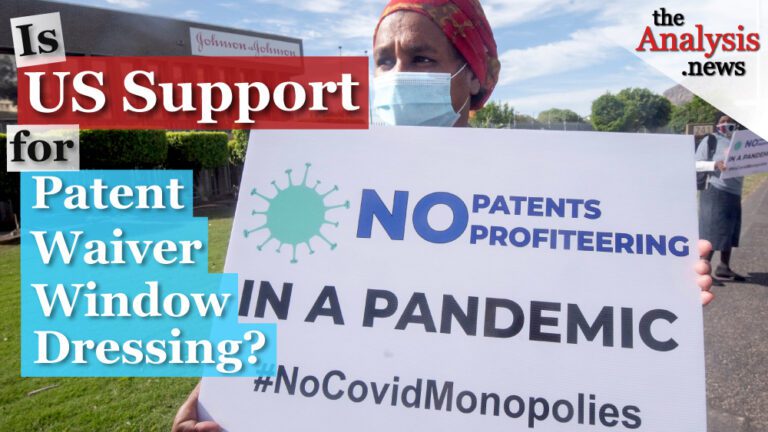
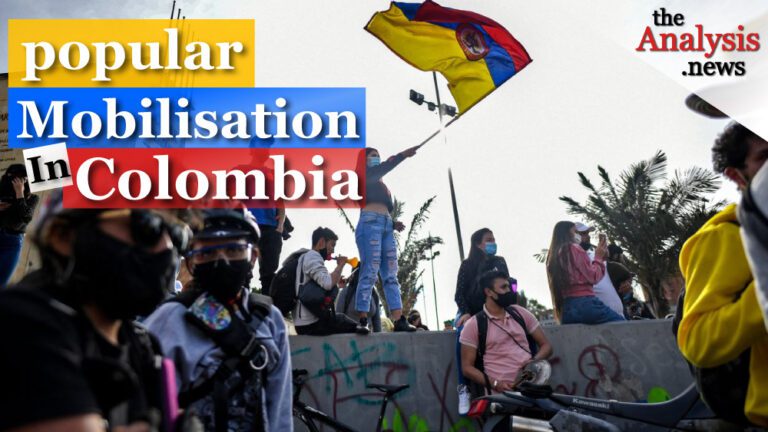
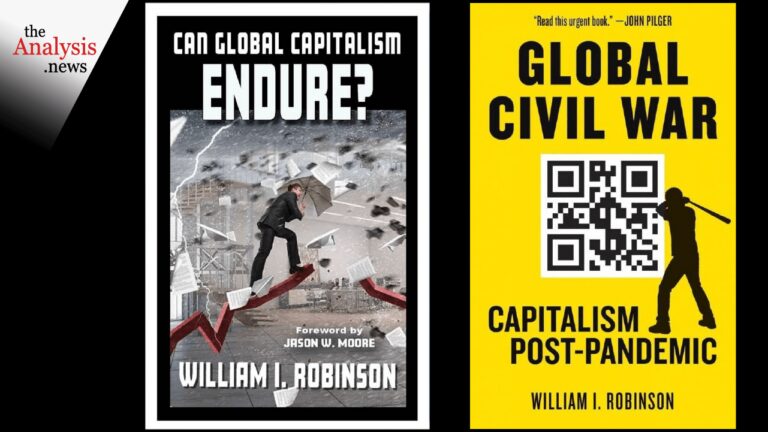
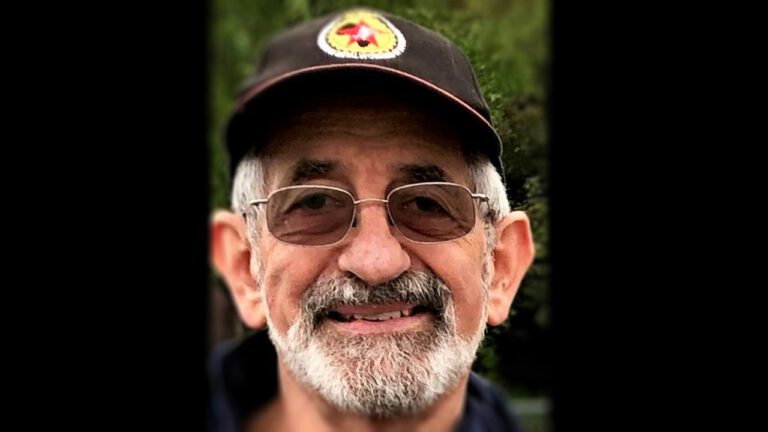
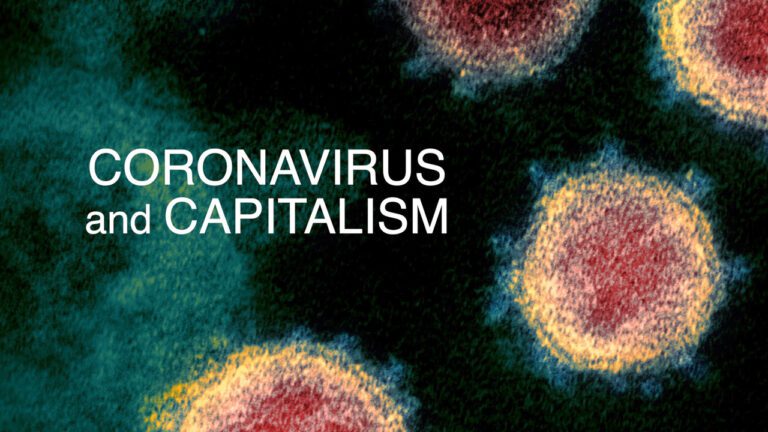

Thanks for joining us on The Analysis.News. We’re the only one that will bring you Adrienne Dixson.
How many times have you heard this: Yeah maybe you have to vote for Biden. But don’t be under any illusions. Paul leaves unsaid that Biden isn’t an iota different than Biden. It was just this kind of thinking that got us Obama. Who necessarily gave us Trump.
You might have said go to the polls for two minutes and then return to the real work. You didn’t have to endorse Biden. You must not have heard Kevin Zeese rattle off Biden’s record. I’m considering voting for Trump because my Illinois vote doesn’t count anyway. If it may have, I would probably vote Green.